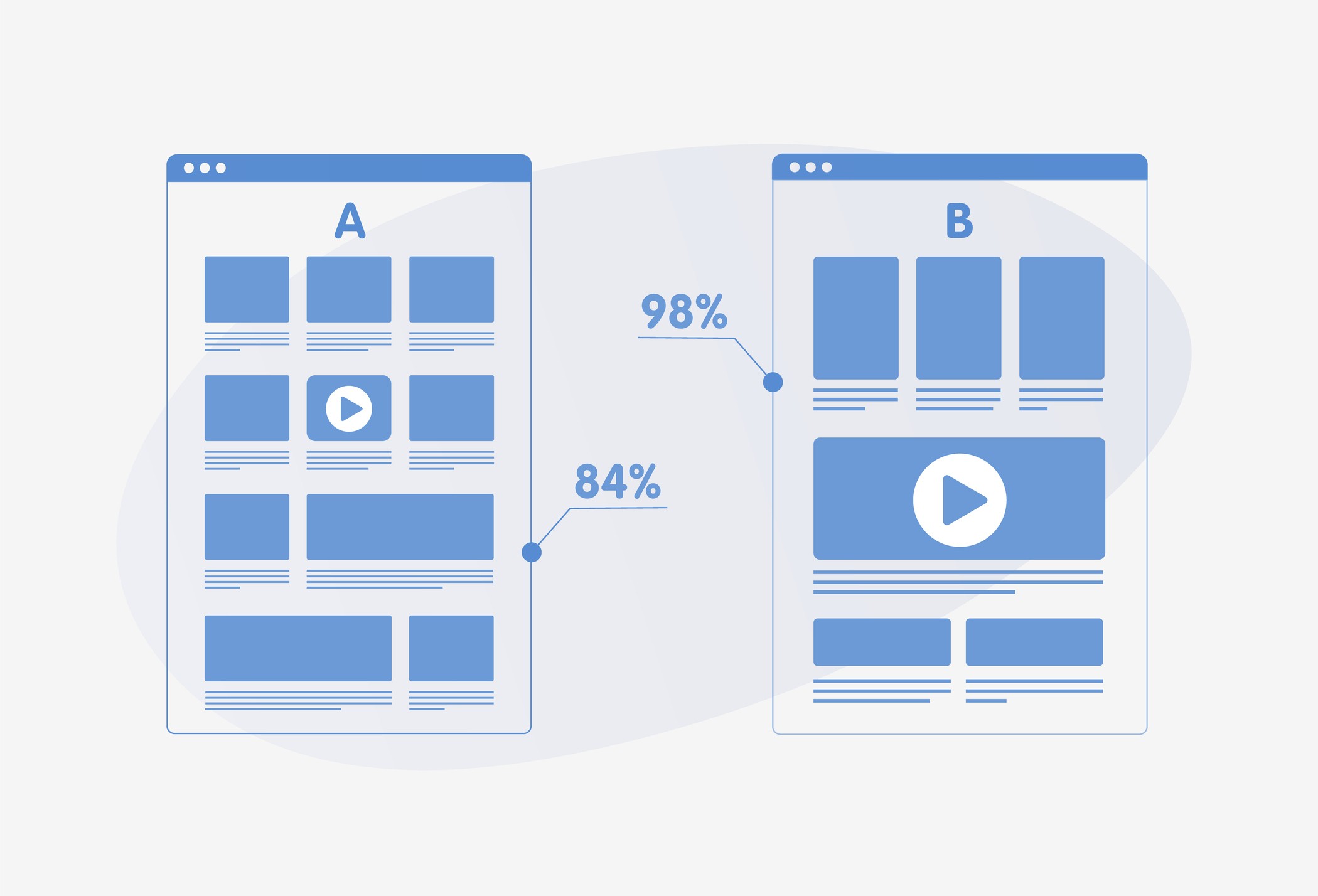Not every time-saving breakthrough in development comes from switching frameworks or rewriting your stack. Sometimes the biggest wins come from small, focused decisions like offloading a tedious task to an API that already does it well.
Whether you're building a quoting tool, setting up hosting, or refining a form, there’s a good chance part of your workflow is doing something that doesn’t need to be custom-coded. These aren't the big, flashy features clients see, they're the utilities that quietly keep things running.
Tasks That Sneak Into Every Dev Sprint
Micro features are the behind-the-scenes tasks in a project that rarely make it onto a roadmap but still need to be built. They’re functional, usually simple, and often invisible to the end user, but not to the developer who has to code them.
These features aren’t selling points. No one’s getting excited about postal code validation or DNS resolution. But they’re the glue that holds everything together. Without them, forms break, user data is inconsistent, and launches get delayed because of small, avoidable errors.
The problem is, micro features tend to slip through the cracks during planning. They seem too minor to estimate but still take time to implement, especially if you’re writing them from scratch. That time adds up fast, especially when you’re juggling multiple projects or trying to stay on budget.
A few common examples:
- ZIP-to-location conversion so users don’t mistype their city or province
- Email validation to prevent garbage data and reduce bouncebacks
- DNS or MX record checks during domain setup or diagnostics
- Packing logic for layout fit or inventory handling
These features are easy to overlook but harder to avoid. The more you can offload with modular tools or API endpoints, the more time you save and the less you have to rebuild the same logic again and again.
Letting APIs Handle the Heavy Lifting
As developers, it’s easy to fall into the habit of building everything ourselves. It feels cleaner, more controlled, and more tailored to the project. But when it comes to utility features, those bits of logic that do one thing well and often repeat across projects, building from scratch isn’t always the best use of your time.
Reusable logic doesn’t always need a custom solution. Validating a postal code, checking if an email is real, or confirming DNS records are all tasks with known structures and predictable outcomes. These are the kinds of problems that thousands of developers have solved before you and that many APIs already handle efficiently.
Using a battle-tested API reduces the chances of edge-case bugs, outdated data, and overlooked exceptions. You’re offloading the complexity to a service that specializes in it, freeing yourself to focus on project-specific work that actually needs your attention.
Think of it in terms of return on effort:
- You could spend two or three hours writing and testing an email validation system
- Or you could make one API call that does the job instantly, with years of refinement behind it
When you stack a few of these smart integrations together, it makes a real difference over the lifecycle of a project.
Where API-Driven Features Fit Naturally
Some parts of a project are just asking to be handled by an external API. These aren’t major app features or core business logic, they’re the smaller, practical tasks that show up over and over in different forms. When used thoughtfully, API-driven micro features slide right into your workflow without adding complexity.
Here are a few places where they make the most sense:
Form Enhancements
Forms are one of the most common places where micro features can improve both user experience and data quality. For example:
- ZIP Code Lookup can auto-fill city and province fields based on user input, saving effort and preventing typos.
- Email Checker APIs can flag obviously invalid or fake addresses before the form even submits, cutting down on junk leads and bounced emails.
Pre-launch Tools
During setup and deployment, quick validation checks can prevent bigger problems down the line:
- Use a DNS Lookup or MX record check to verify domains are pointing correctly before go-live.
- These tools are great for hosting providers, white-label partners, or anyone managing multiple environments.
Admin Panels and Dashboards
APIs also shine in back-end or admin interfaces where extra context can help with decisions:
- Show geolocation info from an IP address for user activity logs or security checks.
- Run domain validation during onboarding to ensure client-provided URLs are reachable and configured correctly.
Smart Display Logic
Need to sort items into containers, fit blocks into a grid, or calculate layout constraints?
- A Bin Packing API can handle space optimization for both physical products (e.g., shipping boxes) or visual layout planning (e.g., dashboard tiles, gallery displays).
This saves you from writing complex layout logic or relying on front-end guesswork. And when you don’t have to reinvent the wheel every time one comes up, you get faster launches, cleaner code, and more predictable results.
Types of Tasks Where APIs Save Time
Sometimes the fastest way to understand the value of an API is to see what it replaces. Below are a few practical examples where a single API call can eliminate repetitive logic, reduce edge-case errors, and save hours of development time.
Auto-Filling Location Data with ZIP Lookup
Instead of asking users to type in their city and province (and hoping they spell it right), you can use a ZIP Lookup API to handle it automatically. One API call turns a postal code into clean, structured location data, ideal for shipping forms, lead capture, or anything where address accuracy matters.
Filtering Bad Leads with Email Checker
Bad email addresses waste time and resources, especially in lead gen and contact forms. An Email Checker API can validate formatting, check domain status, and even flag disposable addresses before a form is submitted. That’s less junk in your CRM and fewer support tickets from clients wondering why contact forms “aren’t working.”
Pre-Launch Domain Checks with DNS Lookup
Launching a new site or email service and relying on the client to set up DNS records? A quick DNS Lookup API call during onboarding can confirm everything’s pointed where it should be, without needing to log into a third-party dashboard. It’s simple, reliable, and prevents last-minute launch delays.
Optimizing Layouts or Shipments with Bin Packing
Whether you're designing a visual dashboard or trying to calculate how many items fit in a container, bin packing logic can get complex fast. Instead of hardcoding every layout scenario or trying to brute-force placement logic, a Bin Packing API gives you optimized arrangements instantly. Useful for eCommerce, inventory tools, or even visual content builders.
Keep It Lightweight and Maintainable
One of the biggest advantages of API-driven micro features is that they don’t bring extra baggage. These aren’t full-service frameworks or bloated plugins, they’re focused tools that do one thing well and stay out of your way.
You don’t need to install a package manager, pull in a third-party SDK, or refactor your project to get started. Most APIs can be added to any stack with a simple fetch or cURL call. That means fewer dependencies, less maintenance, and fewer moving parts to worry about when something breaks.
Lightweight integrations like this are especially useful in fast-paced projects or client work where the priority is shipping clean, functional features without adding long-term tech debt. They’re easy to test, easy to swap, and easy to document.
They also encourage more modular thinking. When you solve smaller tasks with focused, external tools, your codebase stays cleaner and easier to manage. You end up spending less time fixing validation edge cases or rewriting boilerplate and more time on what actually matters to the client.
And if you ever decide to bring something in-house later, the transition is easier because the integration points are already isolated and well-defined. You’re not locked in, you’re just working smarter for now.
Modular Tools Make Your Stack Stronger
APIs aren’t just for complex integrations or full-blown platform features. Sometimes their best use is in the smallest parts of a project, the things no one notices unless they break.
Micro features powered by APIs can quietly save you hours. They handle the repeatable logic, the edge-case cleanup, and the chores you’ve probably written more times than you care to admit. Over the lifecycle of a project, or across multiple projects, those savings add up.
Whether it’s a quick DNS check during setup, validating a ZIP code before it hits your database, or filtering out bad emails before they enter your system, lightweight API calls can keep your stack clean and your time focused.
If you’re looking for simple, reliable endpoints that plug into almost any stack, WyldAPI's full list of tools is a good place to start. We built it to support our own development workflows, and use it daily on client projects. You don’t need to commit to anything big, just replace one chore you’re tired of repeating.




